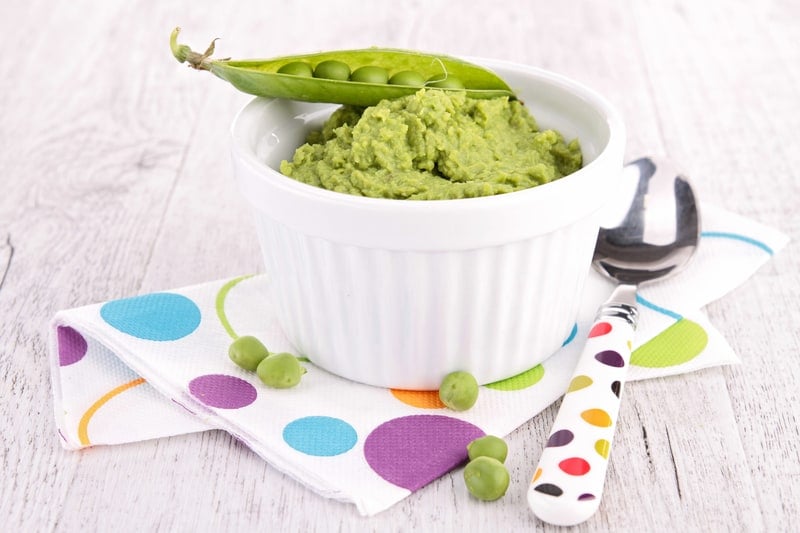How Long Do Farm Fresh Eggs Last? (Guide To Storing Eggs)
This post may contain affiliate links. As an Amazon Associate, I earn from qualifying purchases. Please read my disclosure.Ever asked yourself, how long do farm fresh eggs last? With their beautiful yellow yolks and rich flavor, we all know that they make the most delicious healthy breakfast. But do you actually know how long do fresh eggs last on the counter or how long do eggs last after being laid? My guide covers everything you need to know!

Fresh eggs are much better than store-bought! In my house, they’re all we eat. They’re more flavorful, healthier, and a more ethical and environmentally friendly choice.
Caged chickens from non-organic farms are often kept indoors (source) and fed an unnatural diet of corn, soy, high fructose corn syrup, and cottonseed (source). In contrast, naturally raised free-range chickens have access to fields to forage for food.
Plus, fresh eggs shelf life is notably longer than that of store-bought eggs. Commercial eggs purchased at a store are usually at least a month old before they even hit the shelves (source)!
So, it’s no wonder that keeping laying chickens or buying eggs from small farms is becoming more popular. I’m always looking for fresh eggs when I go to my local farmer’s market each week.
And you might have noticed all the hobby farms, roadside stands, and community egg vendors popping up in suburban, rural, and urban areas. No matter where you live, whether you produce your own backyard chicken eggs or buy them at the local farmers market, fresh eggs are now more accessible than ever.
However, I still suggest that you ask farmers how they raise their chickens and what they are fed. It’s also equally important to know how to store the eggs and how long they last. But not to worry! I’m going to answer all your questions like “how long can fresh eggs sit on the counter?” and “how long do fresh unwashed eggs last in the refrigerator?”
How Long Are Fresh Eggs Good For?
“How long do farm fresh eggs last?” is a common question that I often get since switching from grocery store eggs to farm fresh ones. In my experience, I’ve found that it depends on if they have been washed and how you store them, such as on the kitchen counter versus in the back of the fridge. Knowing the washed and unwashed chicken eggs shelf life is important.
So, how long can fresh, unwashed eggs sit out? You can keep unwashed eggs at room temperature for at least 2 weeks and up to a month.
I recommend eating them within two weeks for the best taste, but they’re fine to eat within a month of being laid. If I don’t plan to finish them within a month, I move them to the fridge where they will last for up to 3 months.
Now, as for how long do fresh eggs last unrefrigerated if they have been washed? You should never keep washed eggs at room temperature. I always put washed fresh eggs in the refrigerator where they will keep for about a month to 5 weeks (source).
How To Store Farm Fresh Eggs
Now that you don’t have to wonder, how long do eggs last on the counter, let’s talk about how to store them. I’ve already talked about how long do non refrigerated eggs last compared to when you store them in the fridge. But what if you get your eggs straight from a farm or a friend?
What To Do When You Bring Eggs Home From The Farm
Whether you have your own chickens, get your eggs from a friend or family member with a backyard flock, or buy them from a farmers’ market, you need to know how to treat your eggs.
If my farm fresh chicken eggs are unwashed, I know this means their bloom, also called the cuticle, is still on the shell, protecting them from bacteria. In this case, I know I can safely store them on the kitchen counter at room temperature. I usually like to store my eggs in a basket with some straw or hay, which helps maintain a stable temperature.
However, if my eggs have already been washed, I put them in the fridge. As I mentioned before, washed eggs should never be kept at room temperature.
What Is The Egg Bloom?
The protective bloom is a protein-rich, foamy layer that surrounds the egg. Through my research, I’ve discovered that it’s the outermost layer of an egg’s shell, applied just before the hen lays the egg. You might have heard it called the cuticle.
This natural coating serves as the egg’s first line of defense. The bloom prevents bacteria from entering the egg white through the shell. It also helps keep the egg fresher for longer by limiting the flow of air through the pores of the eggshell.
However, while most fresh eggs from a farm still have their bloom, store-bought eggs do not. This was the first thing I noticed when I switched from regular to fresh eggs.
Commercial egg producers wash the eggs, removing this protective layer, which makes the egg pores accessible to new bacteria. To counter this, many producers spray the eggs with a chemical sanitizer before packaging to decrease the possibility of bacteria like Salmonella contaminating the eggs.
Should You Wash Your Farm Fresh Eggs?
It’s really not necessary to wash your chicken eggs from your backyard coop or when you bring them home from the farm. I actually advise against it because, as I mentioned, washing removes the protective membrane, so they will have to be refrigerated immediately.
If my eggs are really dirty and I feel it’s necessary to clean them, I just carefully dab them with a cloth to preserve the egg bloom. This way, I clean them while still being able to store them at room temperature.
Pasteurized Eggs Vs. Unpasteurized
I think it’s also important to talk about pasteurization. Many people believe that washed eggs are considered pasteurized eggs and unwashed eggs are unpasteurized, but that’s not the case. These are two totally different processes (source).
As I’ve mentioned, washing eggs is all about removing dirt, chicken poop, and other contaminants from the shell. It cleans the shell but also strips away the egg’s protective bloom. On the other hand, pasteurization is about making raw eggs safer to eat by gently heating them to around 140°F (60°C) for about 3.5 minutes to kill harmful bacteria.
In the U.S., egg producers wash commercially sold eggs to meet food safety standards, which is why they are in the refrigerated section but they don’t pasteurize them. I have found that pasteurized eggs are more common in the food industry or used by home cooks who seek them out for recipes like traditional tiramisu and homemade mayonnaise.
If you’re now wondering, how long are unpasteurized eggs good for? Well, as you’ve probably concluded, unpasteurized eggs are just regular eggs so they will keep for 1 to 3 months depending on how you store them.

How To Keep Eggs Fresh
Once home, you not only need to know how long farm fresh eggs last and how long are eggs good on the counter but also how to keep them at their freshest. Trust me, it makes a difference in the taste.
You can put unwashed eggs in any dish on the counter or in a basket with hay, like I do, in a cool, dry place away from direct sunlight. You want to keep them away from heat and humidity as this can make them spoil faster. I also recommend storing them in an egg skelter, which helps keep them organized and allows you to use the oldest eggs first.
When kept in the fridge, I store both washed and unwashed eggs in an egg carton to prevent them from absorbing strong odors and flavors from other foods. This helps maintain their optimal freshness. I also place them in the refrigerator’s main body rather than in the door to ensure a cool and consistent temperature.
Storing Yolks And Whites
If I’ve already cracked my fresh eggs and have some extra yolks or whites, I always store them in an airtight container in the fridge. When storing egg yolks, I cover them with a little bit of cool water to keep them from drying out, then drain the water before use. Both yolks and whites should be used within a couple of days for the best quality.
Storing Cooked Eggs
As for cooked eggs, I put them in an airtight container in the fridge where they last from 5 to 7 days. Just keep in mind that if you are storing hard-boiled eggs in the fridge, you may detect a “gassy” unpleasant odor caused by hydrogen sulfide, which forms when cooking the eggs. It’s completely harmless, and I’ve noticed it usually dissipates after a few hours.
Can You Freeze Eggs?
Yes, you can freeze eggs! But you can’t just pick them up and put them in the freezer. These are my best tips on how to freeze eggs successfully!
How To Freeze Eggs
You can freeze eggs for up to a year (source), but I suggest using them within four months for maximum freshness. I only ever freeze in-date eggs that are still good (never freeze old eggs that may have gone bad!). I also never freeze raw eggs in their shells because both egg whites and yolks expand when frozen, which can damage or break the shell.
First, I crack the eggs and separate the whites and yolks, placing them in separate containers, leaving about ½ inch for expansion. You could also freeze each egg white and yolk separately in covered ice cube trays. Then I label the containers with the date, number of eggs (whites or yolks), and put them in the freezer.
How To Defrost Eggs?
You must completely thaw frozen eggs before using them and only use them in fully cooked dishes. I never cook eggs straight from the freezer.
To thaw, I transfer the eggs from the freezer to the refrigerator and keep them there overnight to avoid bacteria exposure. If I’m in a rush, I run cold water over the container to speed up the process. It’s important to use the eggs within a week after they’ve thawed.
Note: Freezing changes the consistency and taste of egg whites, but yolks hold up surprisingly well.
How To Test If An Egg Is Still Good
If you are unsure if your store-bought or fresh farm eggs are still good, there are some tests you can perform to weed out any rotten eggs.
The most reliable way to test if eggs are still fresh is the float test. I simply place an egg gently in a bowl or glass of cool water and watch to see if it sinks or floats. If the egg sinks, it is fresh. If the egg floats or tilts upwards, then it’s old.
When eggs are first laid, they do not contain any air. As the egg cools, a tiny air pocket forms between the inner membrane and the shell. Over time, as the egg ages, the yolk absorbs liquid from the egg white (albumen). This process causes the release of moisture and air, enlarging the air pocket. If the air pocket becomes large enough, the egg will float in water, indicating that it is too old to eat.
Other Ways To Check Your Eggs:
- Check The Date: I feel pretty confident my eggs are fresh if they are within the expiration or “sell by” date on the original carton, or 21–30 days after the “pack date,” also known as the Julian date. For farm fresh eggs, I know that 2 weeks at room temperature with the bloom intact, or 3 months washed in the fridge is a good rule of thumb.
- Sniff Test: Sniffing a raw or cooked egg to see if it’s bad is a simple but reliable method. If it smells horrid I know it’s rotten.
- Visual Inspection: The shells should be intact and not cracked. I toss out any broken eggs. I also look for evidence of bacteria and mold on the eggs’ shells as well as any discoloration of the white and yolk.
How To Use Old Eggs?
Let’s say you got yourself some farm fresh eggs, plopped them on the counter, and then totally forgot to consider how long unrefrigerated eggs last! Don’t worry, it happens to all of us.
Of course, fresh eggs taste best in omelets and scrambles, as well as fried, poached, or any egg-forward dish. But as long as they aren’t spoiled, I will use older eggs in any dish where the eggs aren’t the star ingredient.
One of my favorite ways to use old eggs is my whole wheat pasta recipe and almond flour tortillas recipe. They also work as a perfect binder for my black bean quinoa burgers, southwest pinto bean burgers, and mushroom fritters.
Should You Bake With Old Eggs?
When it comes to traditional baking, eggs are an important ingredient that provides structure and prevents moisture loss. However, the egg’s freshness has little effect on the flavor of your baked goods.
For example, if I’m making a yellow cake, I know that the quality of my butter, sugar, and vanilla will have a much more significant impact on the taste of my cake than the freshness of my eggs.
I should mention that egg whites do thin as they age, and some people feel that the thinner egg whites and weakened proteins can stretch more than fresh eggs, resulting in a higher-rising cake. However, when put to the test, this idea fails. A cake made with fresh eggs has the same rise as one made with older eggs.
I’ve made many of my most popular baked goods like my rainbow chocolate cake, red velvet cake mix cookies, and healthy cornbread with older eggs. I’ve even used older eggs in my healthy pumpkin pie.

FAQs
According to some studies, farm-fresh eggs have been found to have less cholesterol and saturated fat than store-bought eggs. They also have 25% more vitamin E, 75% more beta carotene, and up to 20 times more Omega-3 fatty acids than other egg types.
Regardless of whether they are farm fresh or store bought, I don’t recommend consuming raw or lightly cooked eggs because of the risk of salmonella. For recipes requiring raw eggs, I always use pasteurized eggs to reduce the risk of foodborne illness.
Yes, it’s normal for farm-fresh eggs to have some chicken poop on them since they come from the same opening. Eggs from backyard chickens or farmers’ markets often have poop stains that you will want to clean off. But instead of washing dirty eggs, I carefully scrub them with a rough cloth or paper towel to remove the muck while preserving the bloom.
However, if the eggs are really dirty, I rinse them under warm water (never hot) and put them in the fridge. This ensures they are clean but also makes them more susceptible to bacteria since washing removes the protective bloom.
Final Thoughts
For me, there’s nothing better than supporting local farmers by buying farm fresh eggs. They are not only healthy and delicious but also a great way to promote sustainability. Now, that I’ve taught you everything from how long do farm fresh eggs last to how long can chicken eggs sit on the counter, you too can enjoy them with confidence.
To ensure your eggs stay fresh for a long time, just try to remember a few of my key points on handling and storage. Don’t wash the eggs to preserve their protective bloom, which prevents bacteria and oxygen from entering through the shell’s pores. If you need to wash dirty eggs, use warm water, then cook them immediately or store them in the back of the fridge.
And if you aren’t sure about the freshness of your eggs, I recommend performing a float test. Remember even if your eggs aren’t super fresh, as long as they aren’t rotten you can use farm fresh eggs in all kinds of recipes.
By following my simple guidelines, you can ensure your eggs remain fresh and safe to eat.




































I was given a farm fresh eggs that had not been washed and put them in my refrigerator and proceeded to forget how long they’ve been there. I want to use them now but I just realized it’s been four months. That is longer than eggs have ever been in my refrigerator before. Should I sniff them or just call it a wash and throw them away?
I live alone, so I just completely forgot they were had been there that long.
Hi Misty! Unwashed eggs could last for up to 3 months or more in the fridge, so you could test your eggs to see if they’re still good. The most reliable way to test if eggs are still fresh is the float test. Just place an egg gently in a bowl or glass of cool water and watch to see if it sinks or floats. If the egg sinks, it is fresh. If the egg floats or tilts upwards, then it’s old and should be discarded. Also – if you crack the eggs and they smell bad or have a strong odor – they’re probably not good anymore. Basically, when in doubt, throw it out 🙂 Hope that helps!
How long are farm fresh unwashed eggs safe to use if left on counter @ room temp. ? Thank You.
Hi! You can keep fresh, unwashed eggs at room temperature for at least 2 weeks and up to a month. Hope that helps!
Thanks! I’ve always wondered about this. Do store-bought eggs last just as long?
Hi Adam! Store bought eggs are washed, so they need to be refrigerated, and they may not last as long as farm fresh eggs because some of the time they’re “good” is lost during the time it takes to transport them from the farms to the grocery store! That said, you can typically find store bought eggs with an expiration date about 2-4 weeks out from when you purchase it!
Left some farm fresh eggs in a pretty warm car during the day (probably got up to 90-100F), and was wondering how that might affect them… Would the float test still work to see if they’re good?
Hi Russell! 90-100 degrees F is likely too hot for even farm fresh eggs – as they should be stored at room temp (which is about 68-77 degrees F). I do think the float test should work to figure out whether they’re good – but you should also be able to tell by just cracking them open and smelling them – if they smell bad, they’re likely bad! Honestly, if it were me, I would just throw them out (or compost them) because I’m more risk averse when it comes to that kind of stuff!
Now my question is being answered with this post! Almost everything you need to know about eggs are all here.
So glad you found this post helpful Sally!
Is it ok to use fresh eggs never refrigerated in a Easter bread that needs to raise several hours? They would not be cracked until placed in recipe.
Hi Cathie! If the eggs have never been washed, and you received the eggs in the past 2 weeks, then yes, they should be fine to use in an Easter bread as long as you don’t wash them until right before you’re going to crack them and add them to the recipe. Hope that helps!